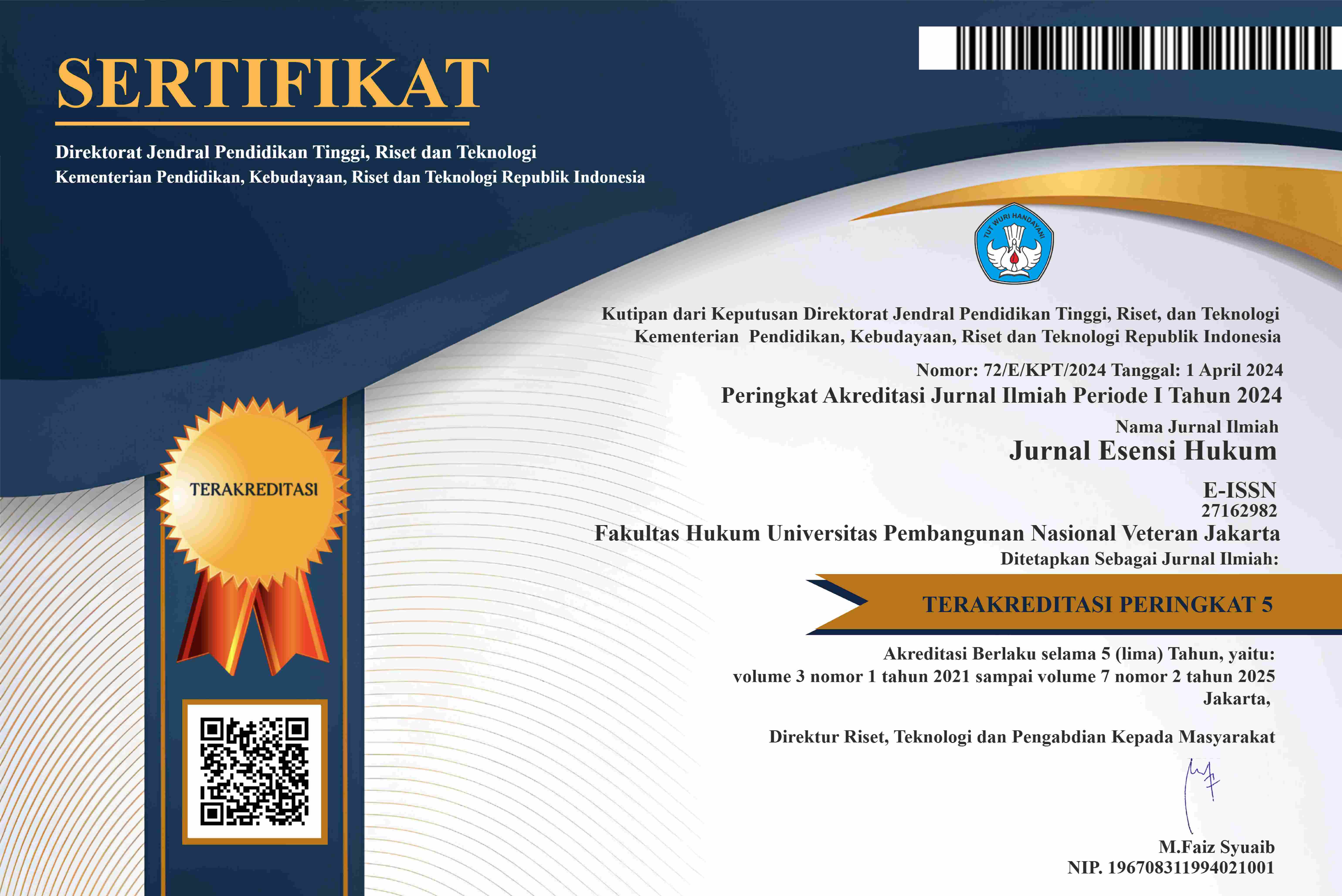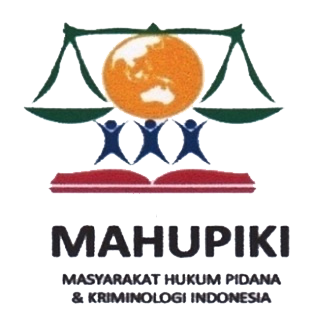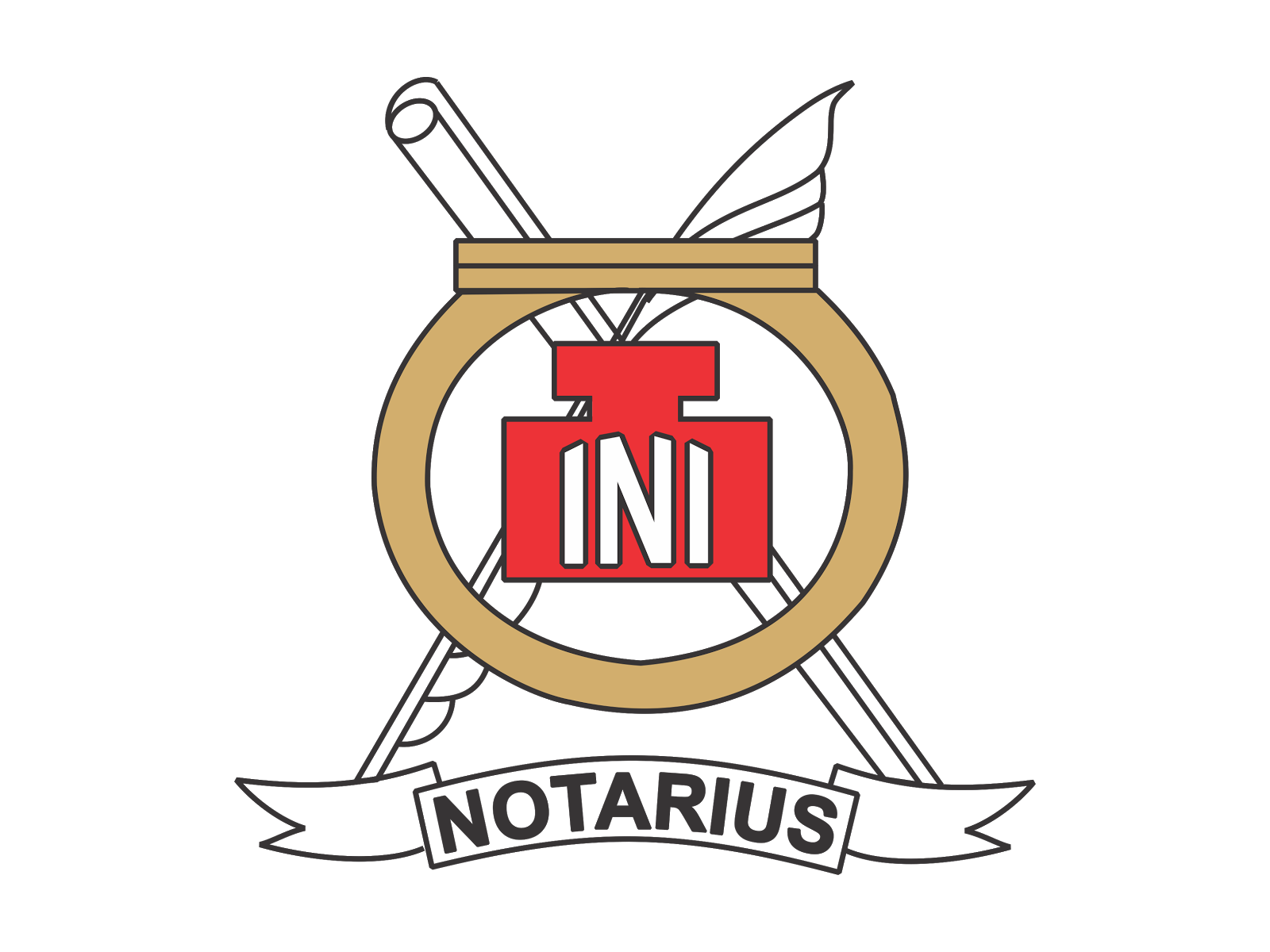KONTROVERSI HUKUM DALAM PEREBUTAN TAHTA PAKUALAMAN TERHADAP DAMPAK SOSIAL DAN KEPASTIAN HUKUM DI MASYARAKAT
Abstract
Abstract
The succession dispute in Pakualaman Yogyakarta reflects the complex dynamics within the governance system and Javanese culture. As part of a rich monarchical heritage, Pakualaman faces challenges in maintaining a harmonious and trustworthy leadership continuity. The debate over succession, governed by primogeniture traditions and modern legal provisions, impacts the political and social stability of the region. This study illustrates the complexities of political and social dynamics in Yogyakarta, highlighting the challenges and opportunities in preserving Pakualaman as a valuable cultural heritage and a significant governmental entity in both regional and national contexts. The research examines the legal controversy surrounding the succession dispute in Pakualaman and its impact on social stability and legal certainty in the community. The study aims to explore the intersection between traditional succession practices and modern legal frameworks, analyzing how this clash affects the political and social dynamics of the region. Using qualitative research methods, data were collected through document analysis, interviews with legal experts, and observations of the local community. The findings reveal that legal uncertainty related to the succession process has led to social unrest and a lack of confidence in the legal system. Furthermore, the study highlights the need for a balanced approach that respects cultural heritage while ensuring adherence to contemporary legal standards. This research contributes to the broader discourse on governance and legal reform in traditional monarchies, emphasizing the importance of harmonizing cultural traditions with the principles of legal certainty in a modern democratic society.
Downloads
References
Jurnal
Anjarsari, L., Agustin, Y. N., & Dedy, R. (2016). Permohonan Uji UU DIY Warga Jawa Timur Tidak Diterima. https://www.mkri.id/index.php?page=web.Berita&id=13238&menu=2.
Annisaul, M. (2016). Dinamika Legium Pakualaman Pada Masa Paku Alam V Tahun 1872-1892. e-journal : Universitas Negeri Yogyakarta.
DWI PRADNYAWAN, S. D. (2015). SEJARAH KAWASAN PAKUALAMAN 1830-1946 (KAJIAN MORFOLOGI KAWASAN PAKUALAMAN).
Dwiyanto, D. (2009). Kraton Yogyakarta Sejarah, Nasionalisme, & Teladan Perjuangan . Yogyakarta: Paradigma.
Fajar, A. (2017). “Pakualaman dalam Perspektif Sejarah dan Budaya,” Jurnal Sejarah dan Budaya, Vol. 10, No. 1, hlm. 45-56.
Handayani, A. (2020). “Dinamika Sosial Ekonomi di Wilayah Pakualaman Yogyakarta,” Jurnal Ekonomi dan Sosial, Vol. 14, No. 1, hlm. 102-115.
Jatinurcahyo, R., & Yulianto. (2022). Pelestarian Upacara Adat Perkawinan di Kadipaten Pakualaman Yogyakarta. Khasanah Ilmu : Jurnal Pariwisata Dan Budaya, 49.
Pawana, S. C. (2020). Titah Raja Kasultanan Yogyakarta Dalam Perspektif Teori Beslissingenleer Ter Haar. Jurnal Hukum : Justitia Et Fax, 120.
Pradhani , S. I., & Anggaran, A. S. (2020). Kedudukan Laki Laki Dalam Budaya Hukum Kasultanan Daerah Istimewa Yogyakarta (Studi Kasus Pengisian Jabatan Gubernur Daerah Istimewa Yogyakarta. Jurnal Penelitian Hukum, Voulume 2, Nomor 3, November 2015.
Rahayu, M. (2019). “Pengaruh Kebudayaan Pakualaman terhadap Kehidupan Masyarakat Sekitar,” Jurnal Antropologi Indonesia, Vol. 13, No. 4, hlm. 134-147.
Siti Jahroh, S. M. (2020). KEDUDUKAN LAKI-LAKI SEBAGAI GUBERNUR DIY DALAM PERSPEKTIF AKTIVIS PEREMPUAN. Laporan Penelitian Universitas Islam Negeri Sunan Kalijaga, Yogyakarta, 100.
Sukmono, H. (2018). “Peran Pakualaman dalam Sejarah Perjuangan Kemerdekaan Indonesia,” Jurnal Sejarah Indonesia, Vol. 5, No. 2, hlm. 98-110.
Wahyudi, D. (2019). “Tradisi dan Modernitas di Pakualaman: Studi Kasus Keraton Pakualaman Yogyakarta,” Jurnal Budaya dan Tradisi, Vol. 12, No. 3, hlm. 77-89.
Wijaya, P. M. (2011). Kekuasaan Politik Raja Kraton Kasultanan Ngyogyakarta Hadiningrat Dalam Perspektif Partai Politik (Telaah Antropologi Politik Terhadap Pro dan Kontra Rancangan UU Keistimewaan Yogyakarta). UIN Sunan Kalijaga, Yogyakarta.
Yulianto, & Nurcahyo, R. J. (2020). pelestarian budaya puro pakualaman sebagai wisata sejarah di yogyakarta. Khasanah Ilmu: Jurnal Pariwisata dan Budaya, 50-62.
Buku
Poerwokoesoemo, S. (1984). Daerah Istimewa Yogyakarta . Yogyakarta: Yogyakarta: Gadjah Mada University Press.
Surjomihardjo, A., & Kurniawan , F. (2008). Kota yogyakarta tempo doeloe : sejarah sosial 1880-1930 . Jakarta: Jakarta Komunitas Bambu 2008.
sumantri, & Sigap, B. (2012). Sepanjang Hayat Bersama Rakyat: 100 Tahun Sultan Hamengku Bowono IX. Jakarta: . PT Kompas Media Nusantara, Jakarta,.
Mahfudhoh, A. (2016). DINAMIKA LEGIUN PAKUALAMAN PADA MASA PAKUALAMAN V. 61.
Website
Ensiklopedia Kraton Yogyakarta. (2009). Dinas Kebudayaan Daerah Istimewa Yogyakarta, (p. 10). Yogyakarta.
Pakualaman : Sejarah Berdirinya, Raja-raja, dan Pemerintahan https://www.kompas.com/stori/read/2021/11/29/130000279/pakualaman--sejarah-berdirinya-raja-raja-dan-pemerintahan?page=all diakses pada 20 Juni 2024
Sejarah Kecamatan Pakualaman https://pakualamankec.jogjakota.go.id/page/index/sejarah diakses pada 20 Juni 2024
Silverio Aji Sampurno, Sabda Raja Rentan Polemik, http://www.viva.co.id diakses pada 21 Juni 2024
Syarat Pengisian Jabatan Gubernur Yogyakarta Digugat https://www.mkri.id/index.php?page=web.Berita&id=13129 diakses pada 23 Juni 2024
Lihat pernyataan Yusuf Kalla dalam tulisan Frinsika Ninditya, Wapres: Sabda Raja HB X pertimbangkan Kesetaraan Gender, dalam http://www.antaranews.com: di akses pada 23 Jun. 24
Peraturan Perundang-Undangan
Pasal 18 ayat (1) huruf m Undang-Undang Nomor 13 Tahun 2012 tentang Keistimewaan Daerah Istimewa Yogyakarta (Lembaran Negara Republik Indonesia Tahun 2012 Nomor 170, Tambahan Lembaran Negara Republik Indonesia Nomor 5339).
Undang-Undang Republik Indonesia Nomor 13 Tahun 2012 Tentang Keistimewaan Daerah Istimewa Yogyakarta
Wawancara
Hasil survey di kadipaten Pakualaman D.I.Yogyakarta pada tanggal 11 Juni 2024
Hasil wawancara dan survey di Pakualaman pada 23 Juni 2024
Copyright (c) 2024 Jurnal Esensi Hukum

This work is licensed under a Creative Commons Attribution-ShareAlike 4.0 International License.
Authors who publish with this Journal agree to the following terms:
1. Author retain copyright and grant the journal right of first publication with the work simultaneously licensed under a creative commons attribution license that allow others to share the work within an acknowledgement of the work’s authorship and initial publication of this journal.
2. Authors are able to enter into separate, additional contractual arrangement for the non-exclusive distribution of the journal’s published version of the work (e.g. acknowledgement of its initial publication in this journal).
3. Authors are permitted and encouraged to post their work online (e.g. in institutional repositories or on their websites) prior to and during the submission process, as it can lead to productive exchanges, as well as earlier and greater citation of published works.
4. 
This work is licensed under a Creative Commons Attribution-ShareAlike 4.0 International License.






2.png)

